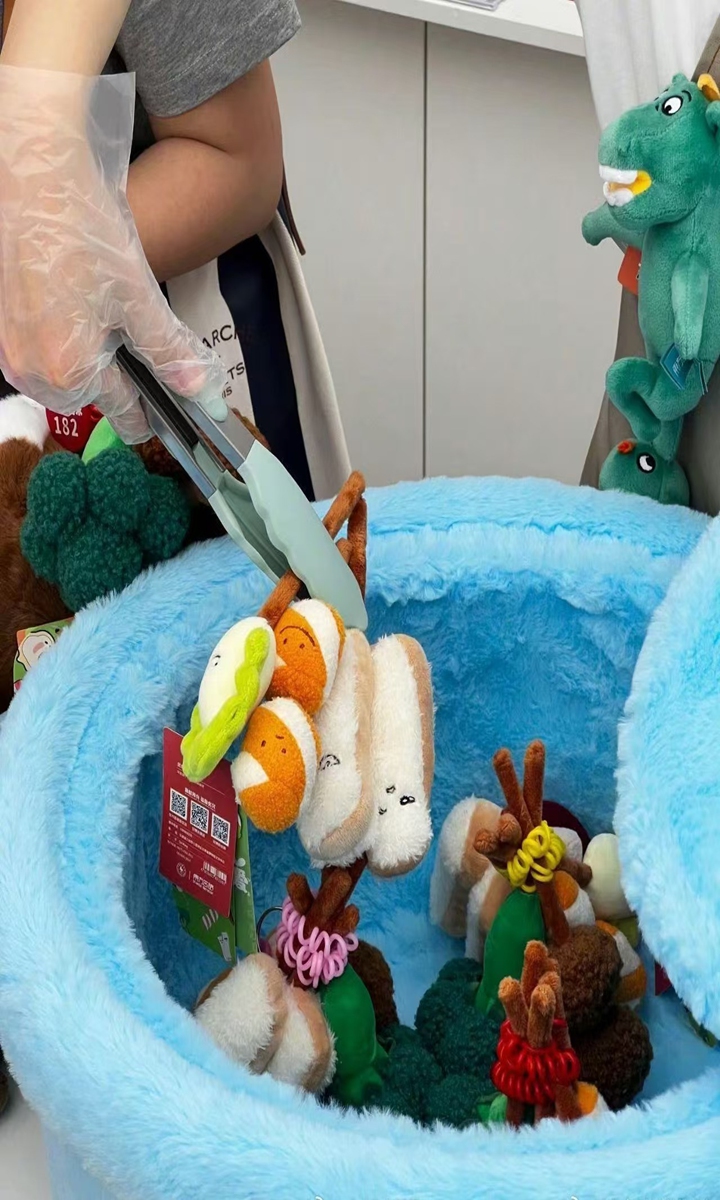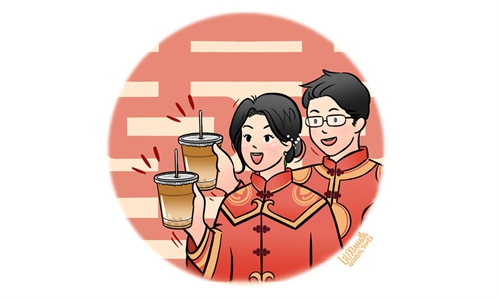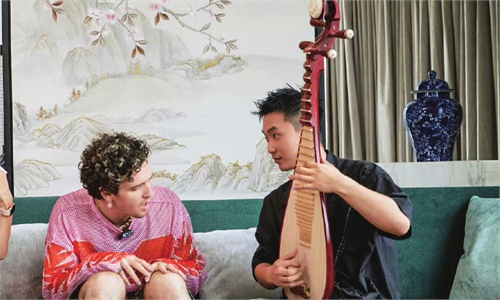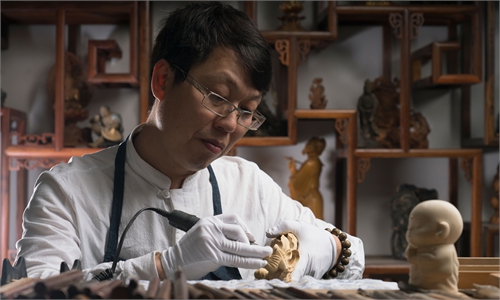ARTS / CULTURE & LEISURE
China's local cuisines transformed into plush toys, trend among young adults

Plush toys of malatang sold at the Gansu Provincial Museum in Lanzhou, Northwest China's Gansu Province Photo: Courtesy of the Gansu Provincial Museum
A sales clerk dressed in a traditional gown stands in front of a traditional Chinese medicine counter, diagnosing, prescribing medicine, and preparing herbal remedies. He carefully puts plush herbal medicine toys into a toy clay pot, shaking it while saying, "The medicine is almost ready." Afterward, he packs the "ready-to-drink" herbs for the customers, wishing them good health. This shopping experience regularly takes place in a plush toy store in Guangzhou, South China's Guangdong Province. It may seem a childish pretend play, but it actually attracts a large number of adult customers.
People in Guangdong are generally believed to be very passionate about health and wellness, and often enjoy drinking medicinal or herbal teas. In an era when adults seek ways to celebrate everyday life, vendors and cultural and tourism departments across China are using innovative approaches to breathe new life into traditional culture. This trend, similar to the UK's Jellycat craze, is sweeping through tourist destinations across the country, and it is often accompanied by the presence of Chinese-culture inspired plush toys. The toys themselves are quite creative, with some representing traditional local delicacies, but it is the immersive shopping experience that truly captivates the young adults.
The "plush-toy trend" has swept the nation in many unexpected ways. Earlier this year, the spicy hotpot, or malatang, in Tianshui, Northwest China's Gansu Province, rose to fame, becoming a trending dish throughout the nation. Due to its success, the Gansu Provincial Museum in Lanzhou later launched a malatang plush toy collection based on it.
The individual pieces imitate ingredients like meatballs, crab sticks, rice cakes, and mushrooms. When purchasing the malatang plush toys, customers select their preferred items, then staff interact with them, asking about their preferences, sprinkling "secret sauce" and patiently "cooking" the "food" in a series of engaging interactions.
Shao Minghua, professor at the Institute of Cultural Industries in Shandong University, told the Global Times on Monday that the growing interest among young people in museums and cultural brands - particularly in the form of plush toys - reflects a developing cultural confidence in the younger generation.
Analyzing the cultural demand of the young people, Shao said that "the young generation are longing for the creative commodities that are of high cultural taste, interesting, and relatable to them in a context of cultural heritage and within their budgets."
Product quality, design aesthetics, interactive experiences and the integration of local culture are all playing their parts to shape up popular products, Shao noted. Taking advantage of the rising trends, she suggested that the museums need to dig even deeper with the collections and come up with more creative ideas to meet the young people's cultural demand.
In Xi'an, the starting point of the ancient Silk Road and renowned for its local cuisines, plush toys inspired by the local delicacy, roujiamo (often referred to as Chinese hamburger), have gone viral on social media. When purchasing a roujiamo plush toy, customers are warmly greeted by shop assistants who inquire about their preferences for meat, sauce, and bun softness, as well as whether they'd like their toy packaged to go or for on-site enjoyment.
Meanwhile, Wuhan in Central China's Hubei Province has promoted its local culinary specialties through plush toys made in the shape of doupi. This street food has become a part of the traditional local breakfast. Now the plush toys of doupi make for great souvenirs of Wuhan.
Lu Yanxia, an expert in motivational psychology and emotional intelligence, explained to the Global Times that this sales approach possesses social attributes. "Plush toys with unique characteristics tied to specific regions or cultural meanings can express the owner's personality and taste," Lu said. This shared interest allows like-minded individuals to forge connections.
As gifts, these immersive sales methods enable consumers to engage directly with the cultural significance and the vibrancy of the toys, highlighting the effectiveness of contextual marketing.



